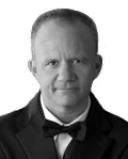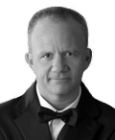
Creativity
How David Beats Goliath in Problem-solving
When and how to be like wine.
Posted January 12, 2009
Here's the problem: Your circle of competence is small, but the demands of the world are great. How do you make your circle of competence speak to the problem? The answer is akin to how people use myths. Historian of religions Jonathan Z. Smith drew on anthropologist Victor Turner's work in divination to explain how myths are similar to wine. People can make wine from nearly any fruit but typically make wine only from grapes. Yet from that initial reduction in choices (from any fruit to just grapes), there then follows a great expansion in that there are thousands of different kinds of wines, all made from grapes. From "an almost limitless horizon of possibilities that are at hand," said Smith, the field of possible cultural meanings is reduced to the fixed set of meanings that are contained in the myth. In other words, myths are often a small number of stories that people tell again and again.
"Then," Smith elaborated, "the most intense ingenuity is exercised to overcome the reduction" when people apply these cultural meanings to deal with a problem. That is, even though there are a small number of stories in the myth, people make these stories speak to an ever-increasing number of different circumstances. People apply ancient sutras to decisions on biotechnology; they ask the Bible to speak to issues of nuclear proliferation. In other words, your circle of competence may be quite small, but by exercising it creatively, you can apply it to many problems.
Smith, J. 1993. Map Is Not Territory: Studies in the History of Religions. Chicago: University of Chicago Press.
Excerpted from Lasting Contribution: How to Think, Plan, and Act to Accomplish Meaningful Work by Tad Waddington. Find out more at http://www.lastingcontribution.com.

